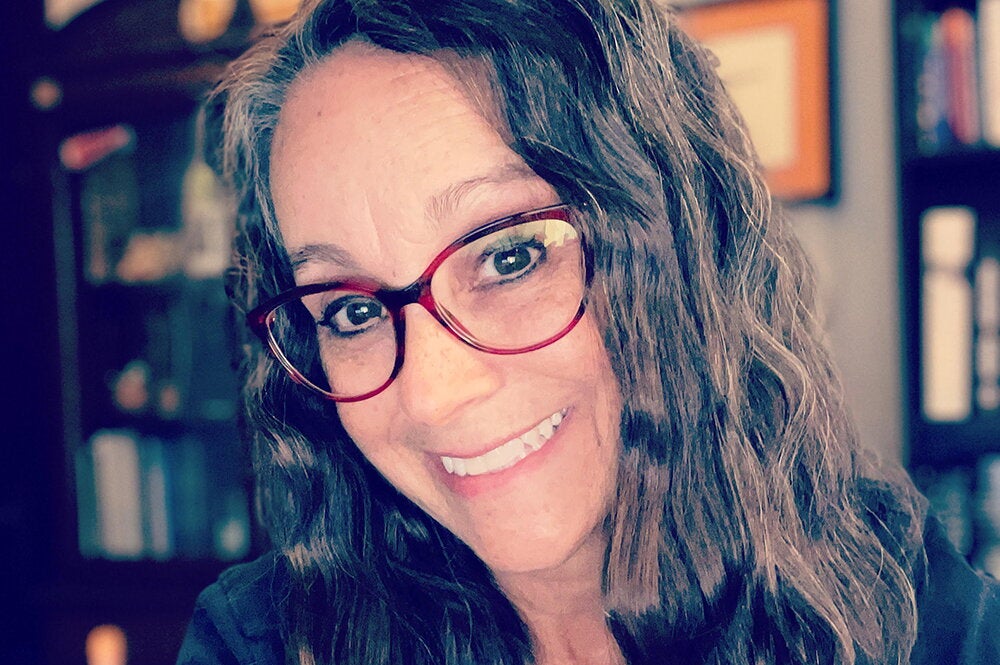

You know that something fundamental has changed in the doctor/patient relationship when physicians start receiving special training to learn how to “just say no” to patients.
LAS alumna Martha Rosenberg recently attended a national medical conference in Chicago, and she was shocked to discover that many doctors are having trouble coping with patients who come to them expecting, even demanding, certain medications.
“They spoke of physicians actually needing to take refusal skills. It has become that pressured,” says Rosenberg. “Many doctors want to be liked, and they want their patients to return, so they don’t want to say no.” But as she puts it, this system “reduces the doctor to the gatekeeper, an order taker.”
Rosenberg, a 1975 philosophy graduate from Illinois, is a health writer who discovered her love for writing at U of I, where she won the Kerker Quinn award for poetry. She is author of Born With a Junk Food Deficiency, and her health writing has appeared in the San Francisco Chronicle, Boston Globe, Consumer’s Digest, Providence Journal, and Dr. Sidney Wolfe’s Public Citizen website.
What ails America, she says, is its chronic overmedication, a problem that she believes became much worse when the pharmaceutical industry began direct-to-consumer advertising in 1997. That’s when viewers of the popular TV show Touched by an Angel were touched by an ad for the prescription allergy pill, Claritin, promoted directly to the consumer. “Prescription drugs had never been sold directly to the public before, because, without a doctor’s recommendation, how could people know if the medication was appropriate or safe?” she says.
This ad opened Pandora’s Medicine Cabinet, and the public was soon flooded by a torrent of advertising for prescription drugs. In many cases, she notes, the advertising was not even for a specific brand; it simply tried to convince people that they suffered from ailments ranging from asthma and osteoporosis to depression and gastroesophageal reflux disease. The result, she says, has been growing hypochondria, as well as an increase in patient pressure on doctors to prescribe medications.

Ironically, Rosenberg began her career by doing advertising work for health accounts. But she left advertising to become a medical writer in the 1980s when she saw that some of the decisions to promote drugs were driven more by profit than patient well-being.
She was also drawn to medical reporting by the controversies over Vioxx and hormone replacement therapy. Vioxx was approved in 1999 as an anti-inflammatory drug, but evidence quickly mounted that it increased the risk of heart attack and stroke, and Merck pulled it from the market in 2004.
Hormone replacement therapy, meanwhile, involved giving older women estrogen and progesterone to diminish the effects of menopause. Then in 2002 a major study by the Women’s Health Initiative showed that women using hormone replacement therapy had statistically significant increases in breast cancer, as well as an increased risk for heart attacks and strokes among older patients.
“We have a short memory,” Rosenberg says. “The risks of hormone replacement therapy had also shown up in the late 1970s, but the public forgot about it in 2002. Now, we’re again forgetting what we learned 11 years ago and they’re marketing it like it’s a brand new drug.
“Certainly we are not in any way trying to take away people’s drugs,” Rosenberg adds. However, she says eliminating direct-to-consumer advertising would reduce the number of people insisting they get a drug they do not need. At the very least, she thinks direct-to-consumer advertising should not be allowed during the first year after a new drug is released, and aggressive forms of advertising could be limited by keeping the ads off of television.
Rosenberg notes that direct-to-consumer ads for powerful drugs use the same potent techniques as other consumer advertising. For example, she says the “wacky” Miller Lite ads, “Can Your Beer Do This?” came back to life to sell an antidepressant. In a glossy magazine ad, a man rows his girlfriend on a scenic lake, listing off the benefits of his antidepressant and saying, “Can your medicine do all that?”
When an ad says, “your mouthwash, your engine treatment, or your teeth whitener, it implies that if you don’t already have an engine treatment or teeth whitener, you should,” she says. “What does it say about the saturation of psychiatric drugs in the community that antidepressants have joined mouthwashes and engine treatments as something people are assumed to have?”


